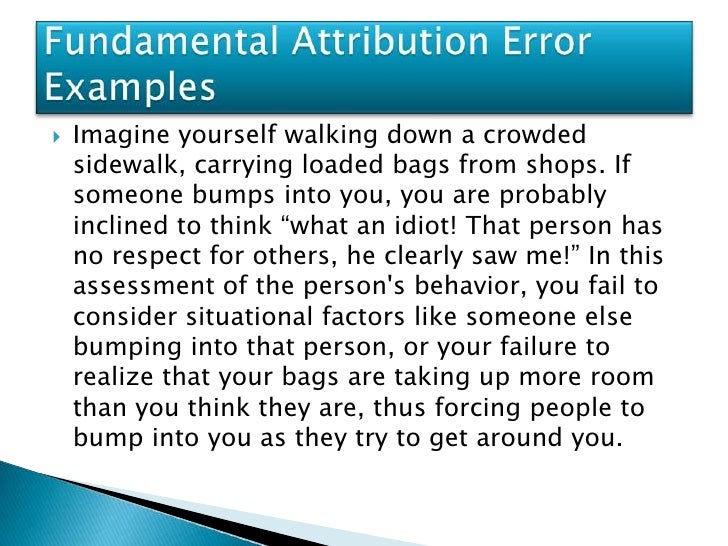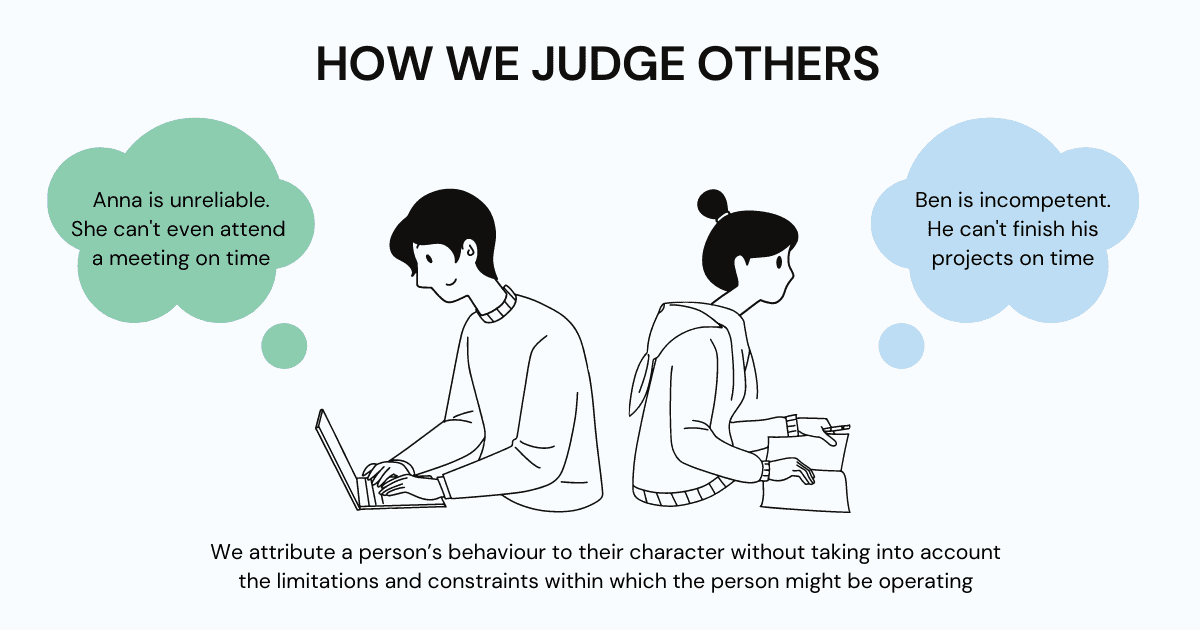

You could attribute someone’s behavior to external factors, or the situation that they are placed in. The other type of attribution is situational attribution. For example, you could say that the woman on the bus rolled her eyes because she is a snobby or rude person. You could attribute someone’s behavior to their disposition or personality. When it comes to human behavior, there are two umbrellas of attribution that could explain certain behaviors and actions. You also want to know why it rained or why certain Presidents were elected into office. You want to know why the woman on the bus rolled her eyes or why someone said “no” when you asked them out on a date. You want to know why someone behaves in a certain way. The attribution theory says that humans try to attribute meaning to the behaviors and events that they observe or experience. One fundamental theory in the world of social psychology is the attribution theory. Understanding this error could help you be more empathetic or rational when making judgements about others and their actions. The Fundamental Attribution Error is a tendency to believe that another person’s actions stem from their personality, rather than outside influences. What is the Fundamental Attribution Error? It’s a common error all of our minds make, called the Fundamental Attribution Error. It’s normal, however, for your mind to automatically jump to the first conclusion.

Or maybe outside influences had a more important role in how a person behaves. Maybe behavior stems from a person’s personality.

There are a lot of different reasons why people lash out or perform bizarre behaviors.


 0 kommentar(er)
0 kommentar(er)
